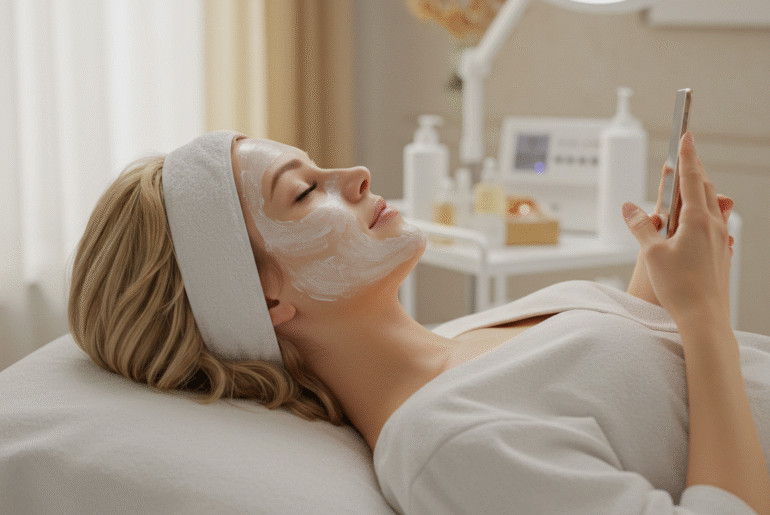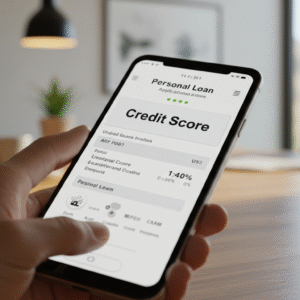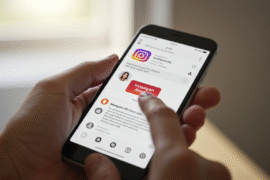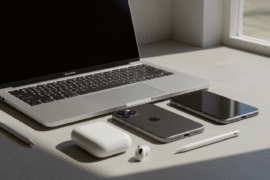This article may contain references to products or services from one or more of our advertisers or partners. We may receive compensation when you click on links to those products or services. Nonetheless, our opinions are our own.
The information presented in this article is accurate to the best of our knowledge at the time of publication. However, information is subject to change, and no guarantees are made about the continued accuracy or completeness of this content after its publication date.
- What History and Science Suggest Let’s face it, technology can be both good and bad. On one side, it helps us keep in touch with people in other parts of the world. It lets us get almost any information we want in no time. The ways it helps make life easier feel like they never end. But there is another side. At times, it can feel like too much. It’s easy to feel anxiety or burnout when your phone beeps and pings with a hundred notifications. It can feel like bees buzzing all around you. You know what I mean? Tech is now a big part of our daily lives, but if you look back in history, you see this: stopping for a bit can make life feel richer and better. Historical Patterns Show the Benefits of Pausing Tech When you look back at history, you can see many times when new technology grew very fast. At that time, some people thought this was good for everyone. But it did not always help every person. A good example is the Industrial Revolution. This time saw big changes, like steam engines and factories. These things were new and seemed great. But they also brought hard jobs and trouble to the lives of lots of people. Tech has changed the way we talk to each other and how we work. But to feel close to people and happy, many of us need to take a break from the phones, tablets, or computers we use every day. Think about the last time you spent hours just scrolling through your social media. What if you used that time to sit in the park or have a coffee with a friend? If you look back, you will see that people feel better when they take time away from screens. This shows that we do well when we turn off our devices and focus on real-life social interactions. Today’s Digital Overload Okay, let’s talk about how things are right now. You may ask, “What is so wrong about being always connected?” Well, here is the thing: being connected at all times builds up stress in our lives. Emails and social media buzzers keep us on edge. When you open work emails after hours and feel the stress hit your stomach, you know it is real. This can happen to anyone, and it shows that constant connectivity from things like social media does affect us. Digital Detox Benefits and Simple Ideas So, what should we do about this? More and more, people who study this say we should take digital detoxes. These are times when you choose to step away from screens and tech on purpose. It is not only a quick break from social media platforms. A digital detox means you step back from your whole digital life for a while. Think about what can happen if you swap your screen time with things that feel good and help you feel calm. You could read a book. You could go for a walk. Or maybe you just sit with your thoughts. This idea might feel a bit strange at first. But just imagine how good and fresh you might feel after this. Here are a few ideas if you want a quick tech detox: Weekend Getaway: Look for a cabin or a beach spot that does not have Wi-Fi. Digital Sabbath: Pick one day each week to stay away from screens. Mindful Morning: Begin your day without tech. Stretch, meditate, or write in your journal instead. Spending Time in Nature Can Heal Nature can do amazing things for us, can’t it? A lot of research shows that being outside is good for both your mind and your body. When you put down your phone and spend more time outdoors, you feel better. Being in nature can lower stress levels. You know that calm feeling you get after a hike or just hanging out in the backyard? That’s what it’s all about. As history shows, people have always liked being outside. Think of when our ancestors would sit around a fire and share stories. They didn’t have phones or anything like that to take their attention away. They were there, in the moment. When we go outside now, we start to feel something like what they did. We begin to get back to that important human feeling. Finding a Healthy Tech Balance I am not saying to throw your smartphone in a lake, unless you feel you have to. What you need is balance. Think of tech like a spice in your meal. If you use too much, the taste will be off, but the right amount can make it better. If you feel tired or worn out, it might be good to look at how you use technology. A few changes can help all of us feel better. Here is a quick thing you can try. Keep a tech diary for a week. Write down how much time you spend on all your devices each day. Also, note how you feel at different times of the day. You might see that staying up late scrolling makes you feel tired and disconnected the next day. The facts can be eye-opening. This may help you feel ready to set some limits. Disconnect to Reconnect Let’s change the topic for a bit and talk about something that could surprise you. When you step away from tech, you can feel close to people again. How many times have you been with your friends, but the group spends more time on their phones than talking to each other? It makes you feel bad when you think about it. When we stay away from our devices, we start to find real ways to connect with others again. Think about this: you have a game night with your friends, and everyone is laughing and having a good time. No one is grabbing their phone every few minutes. These moments bring people together in a way that you just can’t get with tech. The good times we share like this can make us feel close, and we will remember them for a long time. How to Set Digital Boundaries So, how can we work to build these connections on purpose? A good way to start is by setting some healthy tech limits. This can help you and the people around you feel more connected. Setting these limits is one way to make time for real conversations and be there for each other. It is not always easy, but it helps you feel good. Phone-Free Zones: Set up some places in your home where you can’t use your phone. The dining room and bedroom are good choices for this. Scheduled Check-Ins: Pick certain times of the day to look at emails or social media. This can help you not feel like you need to check it all the time. Engaging Activities: Plan things to do that don’t need a screen. Mark these social activities on your calendar. With these tips, you can make a bright and welcoming place for real connections. This will help you feel more alive and give you energy. Reflect on Your Tech Use While it is important to reset how we use tech, you also have to think about your own relationship with it. A lot of people chase after every new gadget or app. Sometimes, we forget to stop and look at what matters. The real value of technology comes from how we use it in our daily lives. Here’s an idea. Why not take some time to think about your own experiences with tech? Have you ever felt inspired when you look at creative posts online? Or, have you noticed feeling not good enough when you see the perfect lives that show up on social media? Noticing what you feel can help you know how you use technology and if it helps or hurts you. Stepping Away Isn’t Surrender It is important to know that when you step away from technology, you are not giving up. Instead, you are taking your time and your thoughts back. This can feel like when you find a good hobby from your childhood again. You enjoy it for what it is, and you do not feel the stress that comes from all the notifications. It lets you feel better and have more time for the things that matter to you. So, go on and take a step back. Change how you feel about the digital landscape. When you make choices about your tech use, you find more time for real-world things. This helps you get on a better, healthier path. Taking a Break from Social Media Social media can be useful, but it often takes more from us than it gives. A social media detox means cutting back or stopping use of platforms like Facebook, Instagram, or TikTok for a set period. This can lead to a better mood, improved focus, and more meaningful use of time. If you try it, even just for a weekend, you might feel the difference right away. Frequently Asked Questions What does it mean by “drop tech for now”? It tells us to take a short break from using too much technology. It says that spending a lot of time on digital devices, including the use of social media, can have negative effects on mental health, relationships with other people, and our overall well-being. A pause in technology use can help us feel better and improve the way we connect with others. Why is historical perspective important in this discussion? Societies have, from time to time, stopped and thought about how they use technology. They have often pushed back when they feel they use it too much. These times show us that keeping a balance with tech is important. It helps make sure the quality of life stays good for all people. What are some negative impacts of excessive technology use? Too much technology use among young adults can lead to more anxiety, depression, and people feeling alone. It can mess up sleep patterns. There can be a drop in how much work people get done because of all the distractions and too much going on at once. How can individuals start to reduce their tech usage? People can start by setting clear limits on screen time. They can pick some places at home where there are no screens allowed. Try to meet and talk to others in person more often. Go outside or spend time on hobbies that do not use screens. These steps will help you cut down on screen time and enjoy other things in life. Are there particular times or situations that are more beneficial for taking a break from tech? Taking some time away from screens when you eat, before you go to bed, or when you are with family and friends can help you feel closer to them. It can also help you feel more in the moment, benefiting both your mind and physical health. Having a digital detox during holidays and other seasons can feel refreshing. This practice can be good for your mind and make you feel better about your time with others. What benefits might people experience from a temporary tech break? People say they feel clearer-headed and less stressed when they spend less time with technology. Many also feel closer to other people and feel more fulfilled in their day-to-day life, which contributes positively to their life satisfaction. Taking breaks from screens can help lower stress levels and help you build deeper social connections. How does this message resonate with current societal trends? More people use tech every day. This message fits with a bigger push for being careful and thinking about how we live. It tells us to try to feel more balanced in all that we do and to put our mental health first, even when there is a lot of noise and stress in today’s life. Final Thoughts In the end, it is about finding balance. The digital age is here to stay, and it gives us a lot of good things. But the best times are often when we step away from it to focus on our digital wellbeing. Spend time outside, be with the people you care about, and take time to leave the digital world behind once in a while. This helps us feel better and enjoy life more. You know, history shows us time and time again that we need to take breaks from tech. It’s good for us to pay attention to real life and feel a true human connection. So why wait? Start doing this today. Step away from all the screen time, take a deep breath, and take in life as it is. Enjoy the simple things and be with people.
- What History and Science Suggest
- Historical Patterns Show the Benefits of Pausing Tech
- Today’s Digital Overload
- Digital Detox Benefits and Simple Ideas
- Spending Time in Nature Can Heal
- Finding a Healthy Tech Balance
- Disconnect to Reconnect
- How to Set Digital Boundaries
- Reflect on Your Tech Use
- Stepping Away Isn’t Surrender
- Taking a Break from Social Media
-
Frequently Asked Questions
- What does it mean by “drop tech for now”?
- Why is historical perspective important in this discussion?
- What are some negative impacts of excessive technology use?
- How can individuals start to reduce their tech usage?
- Are there particular times or situations that are more beneficial for taking a break from tech?
- What benefits might people experience from a temporary tech break?
- How does this message resonate with current societal trends?
- Final Thoughts
- Recommended Reads

Reviewed and edited by Albert Fang.
See a typo or want to suggest an edit/revision to the content? Use the contact us form to provide feedback.
At FangWallet, we value editorial integrity and open collaboration in curating quality content for readers to enjoy. Much appreciated for the assist.
Did you like our article and find it insightful? We encourage sharing the article link with family and friends to benefit as well - better yet, sharing on social media. Thank you for the support! 🍉
Article Title: Why You Need a Tech Timeout
https://fangwallet.com/2025/08/20/why-you-need-a-tech-timeout/The FangWallet Promise
FangWallet is an editorially independent resource - founded on breaking down challenging financial concepts for anyone to understand since 2014. While we adhere to editorial integrity, note that this post may contain references to products from our partners.
The FangWallet promise is always to have your best interest in mind and be transparent and honest about the financial picture.
Become an Insider

Subscribe to get a free daily budget planner printable to help get your money on track!
Make passive money the right way. No spam.
Editorial Disclaimer: The editorial content on this page is not provided by any of the companies mentioned. The opinions expressed here are the author's alone.
The content of this website is for informational purposes only and does not represent investment advice, or an offer or solicitation to buy or sell any security, investment, or product. Investors are encouraged to do their own due diligence, and, if necessary, consult professional advising before making any investment decisions. Investing involves a high degree of risk, and financial losses may occur including the potential loss of principal.
Source Citation References:
+ Inspo
There are no additional citations or references to note for this article at this time.











































